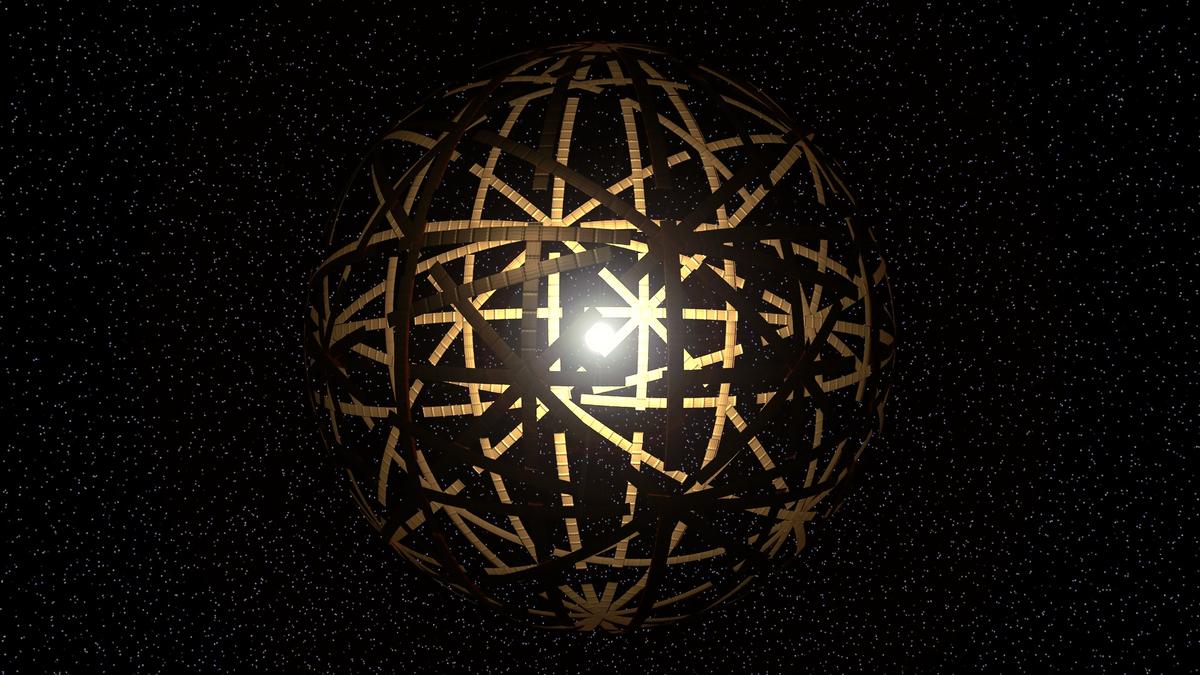
An artist’s illustration of a Dyson sphere.
Imagine you are an astronomer looking deep into space in search of extraterrestrial life. You spot a star that is emitting infrared radiation in anomalous fashion. You zoom in and see a swarm of solar panels covering the star like a shell, quietly collecting an enormous amount of solar energy from the star. Et voila: you have found a Dyson sphere.
The Dyson sphere is named after theoretical physicist Freeman Dyson (1923-2020), who hypothesised its existence. He said that technologically advanced civilisations will have such a tremendous demand for energy that they will have to harness the entire radiative power of a star, using solar energy collectors arranged in a sphere around the orb.
Dyson also figured that these spheres would emit excess heat from the star as infrared radiation, which he said astronomers could look for as an indirect sign of intelligent life — especially life capable of building such megastructures.
Of course, not all unusual infrared radiation emissions are indicative of Dyson spheres. In May this year, scientists set out to look specifically for the signature of Dyson spheres. They scanned 5 million stars within 1,000 light years of the earth. After analysing this data, they found seven stars whose infrared radiation they couldn’t explain.
There is no conclusive evidence still, but might one of these seven stars have a Dyson sphere surrounding it?


